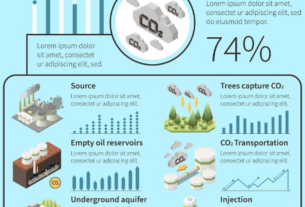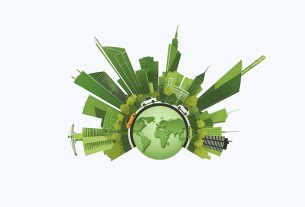|
Getting your Trinity Audio player ready...
|
The Centre for Environment and Sustainability (CES) and the Institute for Sustainability at the University of Surrey were delighted that this years’ Annual Roland Clift Lecture was given by Gary Kass. In this special post, Gary Kass shares his insights on the capacities and competencies needed for environment and sustainability.
Until October 2023, Gary Kass was Deputy Director for Foresight and Innovation at Natural England, having served as Deputy Chief Scientist between 2013 and 2021. He is now Professor of Sustainability Policy and Practice at Royal Holloway, University of London and Visiting Professor at the Centre for Environment and Sustainability at the University of Surrey. Gary was appointed as member of the Office of Environmental Protection College of Experts in November 2023.
What is the Annual Roland Clift Lecture?
I was delighted and honoured to be asked to give the 2023 Roland Clift lecture at the University of Surrey, hosted by the Centre for Environment and Sustainability as well as the Institute for Sustainability.
The Annual Roland Clift lecture is a great opportunity to raise and discuss some fundamental issues relevant to the span of environmental and sustainability sciences, reaching public, academic, business and policy audiences. Previous lecturers have included, in addition to Roland Clift himself, Roland Geyer from the University of California, Johan Rockstrom from Stockholm Resilience Centre, Joanna Yarrow from IKEA, and David Fisk from Imperial College. So, you can imagine my delight (and terror) when I was asked to join the illustrious constellation of previous Roland Clift Lecturers.
What is your keynote talk about?
My topic for the evening was ‘strengthening skills for sustainability – equipping ourselves for future success’ and in that talk I outlined a small number of (hopefully) key points.
Firstly, I set out the origins, and scope of the United Nations Sustainable Development Goals (SDGs) making clear that these 17 goals are indivisible; meaning that we need to recognise the interactions and interdependencies between the goals and address them together. Pursuing a single goal, such as SDG15 Life on Land, without addressing a broad range of other goals is unlikely to be wholly successful, and may indeed cause more problems than it solves.
I also pointed out that the goals are universal – that they apply to everyone everywhere, so there’s no escaping them! And also that we should pursue them inclusively, leaving no-one behind.
However, my main topic for the evening was the need to build the capacities and competencies that would allow us to make progress on any and all of the goals and related targets. My proposition was that, no matter whether we are pursuing goals on health, equality, biodiversity or resource consumption, we need to mobilise a suite of underpinning capacities and exercise a suite of enabling competencies.
What are the capacities and competencies that we all need?
In a nutshell, the capacities are neatly described in a 2020 article from William Clark and Alicia Harvey at Harvard who suggested we need the following capacities:
▪ Measuring sustainable development in meaningful ways
▪ Promoting equity
▪ Linking knowledge with action
▪ Enabling system adaptation to shocks and surprises
▪ Facilitating system transformation to more sustainable pathways
▪ Devising governance to enable the foregoing
It is worth saying here that these capacities are not independent of each other and, like the SDGs themselves, should be developed together.
As for the competencies, during my lecture, I outlined the suite of eight Key Competencies for Sustainability as set out by UNESCO (the United Nations organisation that promotes education). These competencies are systems thinking, anticipation, values, strategic action, collaboration, self-awareness, critical thinking and integrated problem solving. And yet again, these are interdependent and need to be pursued as a coherent suite.
I then went on to suggest a few directions of travel, in particular that developing the competencies should be explicitly directed towards strengthening the capacities necessary for progress towards sustainability. Also, that we need to develop these as a coherent set.
Lastly, I set out a proposition that, in addition to strengthening the competencies of individuals in each area, we need to increase our efforts to strengthen collective competence…recognising that no one individual can ever be an expert in all of the competencies. The reality is that we will need people with different aptitudes in different competencies to work together – just as a football team can’t thrive with eleven goalies!
What might be the implications for the ecological profession as represented by the British Ecological Society?
I offer five starter questions that BES member and leaders might wish to explore:
1. Does the eligibility for membership of the BES encompass the breadth of competencies and capacities necessary to enable ecological research and practice to contribute fully to the wider pursuit of sustainability?
2. Do the learning and development offerings of the BES, and the learning and development pathways and continuing professional developmentactivities undertaken by ecologists, provide sufficient grounding in these competencies and capacities?
3. What could ecologists and the BES as their professional body do to work with others to help strengthen the suite of capacities and competencies for sustainability?
4. How might the underpinning competencies and capabilities be included within learning and development programmes?
5. Do we have the necessary organisational and institutional enabling conditions to foster these competencies and capacities?
There is no doubt that the specialist expertise of ecologists is vital to achieving the recovery of species, habitats and ecosystems fundamental to ensuring a thriving planet for people and nature.
But, as the BES’s own recent The Future of Ecological Research in the UK publication showed, achieving these outcomes cannot be delivered solely by ecologists. As I once said to the Board of Natural England, “we won’t solve the ecological crisis by more ecologists doing more ecology!” I meant that then, and still mean it now, with great affection for and admiration of the many experts, committed and dedicated ecologists active in research, policy and practice.
My intention then, and my intention now, is to promote working across disciplines, sectors and silos. This ambition is now so critically important, that I now find myself becoming more active in advocating for the widening and deepening of the underpinning competencies and capacities necessary for making progress towards environmental sustainability.
“Watch Gary Kass’ Roland Clift Annual Lecture in full: “Strengthening skills for sustainability – equipping ourselves for future success”.





